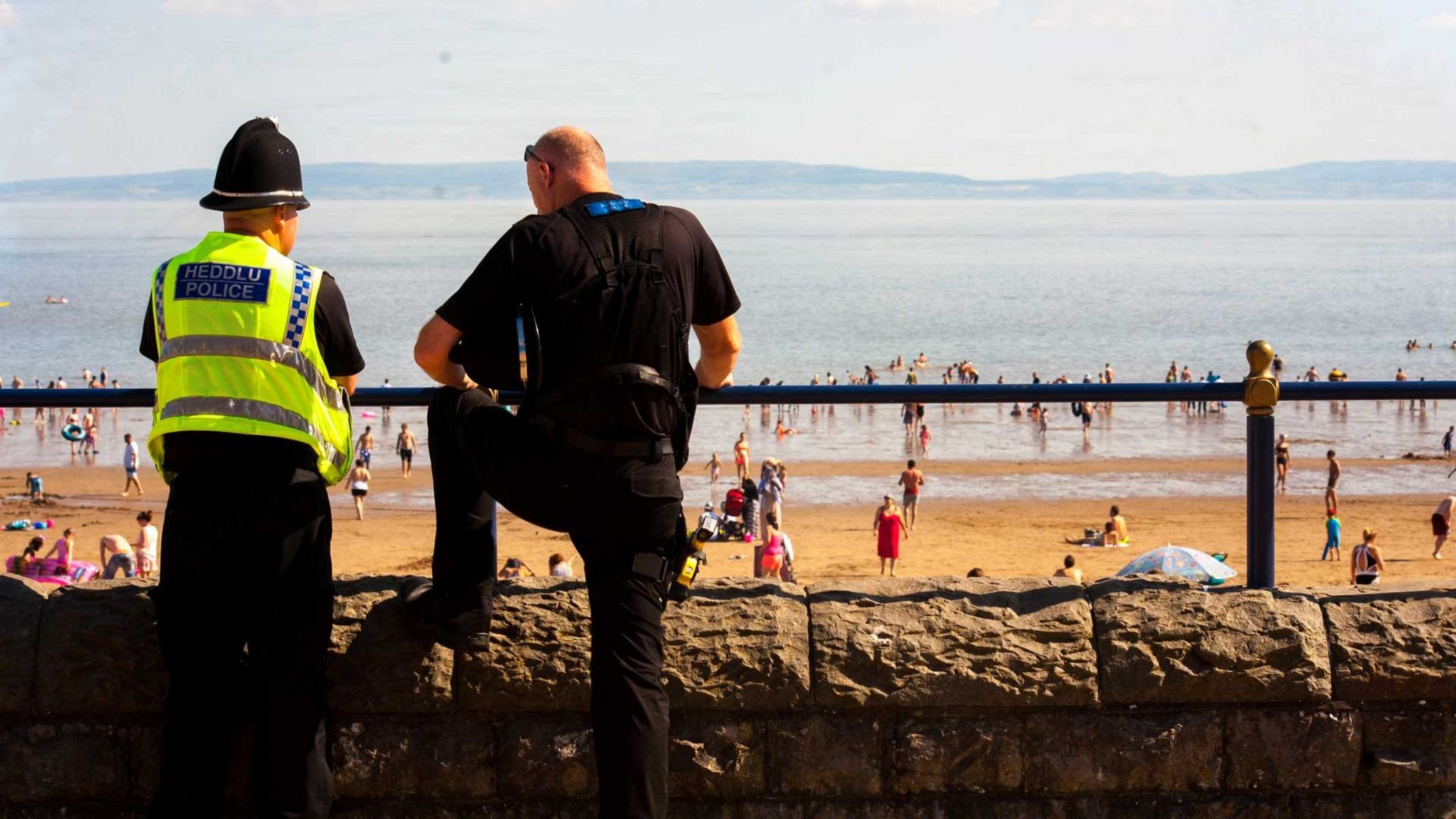Heatwave: Is there more crime in hot weather?
- Published

Police forces are reporting record numbers of 999 calls, which some are linking to the recent weeks of hot weather.
West Midlands police force said: "A combination of the World Cup, summer heatwave and excess alcohol are being blamed for the surge."
While North Yorkshire told BBC Look North that the heat may be a factor, with pressure peaking during hot weekends when people were "outside, drinking in the sunshine".
Data from the London Metropolitan Police, which provides the most detailed month-by-month breakdown, does seem to support a link between hot weather and crime.
Between April 2010 and June 2018, violent crime was on average 14% higher when the temperature was above 20C than when it was below 10C.
Harassment and weapons possession offences were each 16% higher.
And a 1992 study of crime across England and Wales found "strong evidence that temperature has a positive effect on most types of property and violent crime", regardless of the season.
In fact, studies from around the world and over different time periods have repeatedly found a link between hotter weather and rising crime rates.
A decade's worth of crime data from Philadelphia in the US, compiled by Drexel University, found that crime jumped not just between the traditionally colder and warmer months, but also when there were warm spikes in the winter.
Studies on violent crime in the US cities of Cleveland, Minneapolis and Dallas found a similar trend.
And research from Mexico, which took 16 years' worth of daily crime records from different municipalities, equating to 12 million days of data, found an increase in temperature of 1C correlated with an increase across all types of crime of 1.3%.
There were about a third more accusations of crime per population on days hotter than 32C than on days cooler than 10C.
The researchers estimated about two-thirds of these were additional crimes that wouldn't otherwise have happened.
Some studies suggest crime rises along with temperature to a certain point, after which it becomes "too hot" and crime starts to fall again - but this is disputed.
So there's lots of data linking rising crime to rising temperature - but why is this happening? Experts divide the reasons into two main categories:
- the physical effects of heat on people's responses
- a change in the opportunities available to commit crime
Heat is an irritant and the discomfort it causes, including getting less sleep, might make people shorter tempered.
A researcher at the University of California used sentiment analysis to categorise a billion geo-tagged tweets by mood, matching them up to local weather records.
This revealed a drop in happiness between a day in the range of 15-20C and a day in the range of 27-32C comparable to the drop in happiness the average American feels from Sunday to Monday according to the same Twitter data.
But if discomfort alone is the explanation, then why doesn't the discomfort of extreme cold have the same effect?
Scientists have hypothesised that heat triggers a particular physiological response that makes people angrier and more impatient.
There are studies linking heat to lowered cognitive function, an increased heart rate, higher testosterone production and even a perception of time passing more slowly than normal.
But whether we can make the leap from this to a greater tendency to commit crime is still unclear.
The second, perhaps more convincing, explanation is that changes in the weather also change people's opportunity to commit crime.
While violent crimes increase, other crimes actually appear to decrease when it's warmer. Looking at the Metropolitan Police statistics again, it seems there are about 20% fewer burglaries when temperatures are above 20C than when they are below 10C.
The same factors - more people being around and longer hours of daylight in the summer - which might drive violent crime serve as deterrents for burglary and street robbery.
At the beginning of last winter, the Met Police highlighted that "houses remaining in darkness for longer in the evenings highlight the fact they may be empty, making them more attractive to burglars at this time of year".
Whereas when the weather is good, more people flock outside to public spaces, with the increase in interactions making conflict more likely to start.
This is backed up by the fact that crime rises when temperatures are unseasonably warm in the winter, even if the actual temperature is still fairly mild, as well as during a summer heatwave.